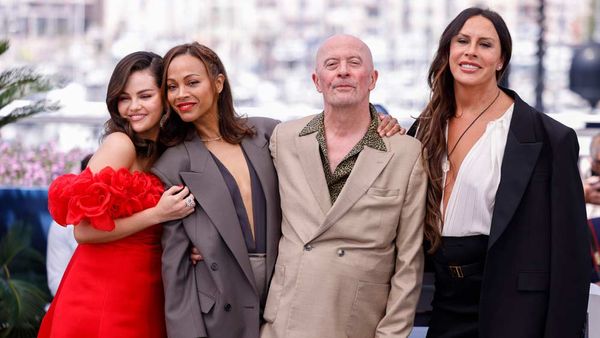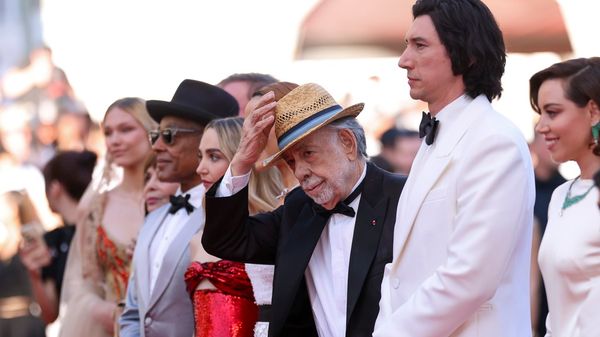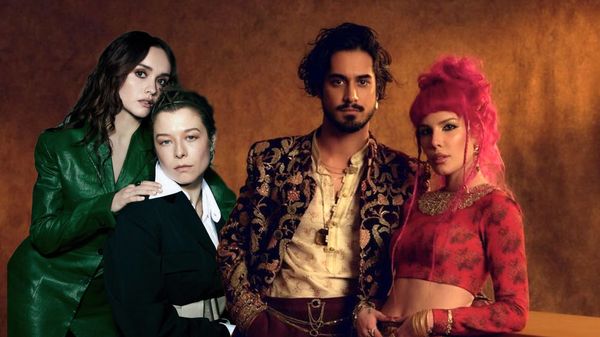July 27, 2011
Fight for gay marriage subject of new doc
Kay Bourne READ TIME: 6 MIN.
Out filmmaker Thomas Allen Harris was stunned to learn of State Representative Byron Rushing's leadership role in the fight for and the passage of the Massachusetts same sex marriage equality legislation.
Harris was interviewing Rushing on another subject altogether, black photographers and snap shots black families have kept as part of their personal history.
He saw a photograph of Rushing's marching for civil rights as a member of CORE in Syracuse.
"That was when I learned of Rushing's early days as a student at Harvard and how he left his studies to go into the Civil Rights Movement. From there I heard about his work around LGBT issues and Mass. Equality as civil rights issues," said Harris.
An unsung hero
Harris says as a gay African American he's conversant in 'who's who' in issues of advocacy for LGBT issues, but he'd never heard Rushing's name mentioned. "Yet, he's a Martin Luther King, Jr. for this movement," Harris said.
So he temporarily put aside the making of the black photography film in favor of recording Rushing's story for history through a documentary film. "Through Rushing's approach to the legislation I began to understand the larger issue of its being a civil right and as such the struggle to get the legislation is very compelling. Also, he emphasized that marriage is a civil institution and should be open to every one," said Harris.
Massachusetts Representative Rushing's impassioned speech during the floor fight over the bill to approve same sex marriage becomes the framework for an investigation into the reasons why such a law is beneficial to everyone.
"Martin Luther King never took the position that the Civil Rights Movement was only for black people," says Rep. Rushing, who is himself a straight man.
Films that effect change
The 18-minute documentary "Marriage Equality: Byron Rushing and the Fight for Fairness" will be screened with the fiction short "Slow" on Friday, July 29, 2011 as part of the Roxbury International Film Festival. The pairing of these two films gives audiences a provocative look at the world of same sex relationships.
The screening takes place at 7:30pm at the Museum of Fine Arts in a program co-sponsored by GLAD and LGBT Film Festival. A panel follows with the film maker, Rushing, and others whose story is touched upon in the documentary.
Now in its 13th year, RIFF is produced by The Color of Film Collaborative. The theme of this year's festival is Local Ties, Global Reach. RIFF is New England's largest film festival dedicated to celebrating people of color. "Many of the films this year are a call-to-action and films that effect change. That is what independent films should do. They should enlighten you, inspire you, and move you to act," said Lisa Simmons, director of the festival.
For further info about the festival which runs from July 28 -31 and for tickets, you can go on-line to www.roxburyfilmfestival.org.
Reached yesterday by phone Representative Rushing said that for his part he was not as surprised as Harris that the film maker hadn't known about the black advocacy for the Massachusetts legislation.
"The story of black advocacy on this issue and others pertaining to gay concerns has not been reported accurately," he said.
A question of fairness
He believes part of the reason is that "the black community finds public questions around sexuality difficult to engage in" so that while they may be favorably disposed to same-sex issues and certainly they're aware of gay people in their community, "they don't feel comfortable discussing it in public."
He gave as an example the work of American Civil Rights activist Bayard Rustin, whom Rushing described as an "icon" in this discussion. Rustin, a member of the Reverend Martin Luther King, Jr.'s inner circle, was gay. "People didn't want to discuss that but when it was brought up that Rustin should step aside on that account, that he can't have the job, the same people would say 'Why? He's doing a wonderful job.'"
Rushing gave as one such instance, "Adam Clayton Powell in one of his nasty moods" took off after Rustin. Powell. who represented Harlem in the U.S. Congress "got mad at Martin," said Rushing. So he started a verbal campaign against Rustin on the basis that he was gay. "It didn't resonate," said Rushing." Black people are very concerned with fairness."
Lost History
Rushing said that the white press turns for quotes to black ministers and only a minority of them are opposed to same-sex equality. "The others don't speak up because they're caught in that cultural thing of not speaking publicly on sexuality."
"Marriage Equality" filmmaker Thomas Allen Harris is familiar to festival-goers. His powerful study of the black South African activists who built the African National Congress ("Twelve Disciples of Nelson Mandela") won the Henry Hampton Award for Excellence in Documentary Filmmaking at last year's RIFF.
Harris's relationship with Roxbury goes back further, however. When a student at Harvard in 1986, he and others from the Phillips Brooks House on that campus lived in a housing project in the community where they made a film with the youngsters living there. He is a graduate of Harvard and the Whitney Museum of American Art's Independent Study Program.
Born in the Bronx, Harris's step dad was one of the Mandela Twelve. His other films to date also have a personal angle, many of them inspired by the filmmaker's being openly gay (and in a long term relationship) as well as being a black man.
Other stories in the film include that of David Wilson, the plaintiff in the Goodridge versus the Dept. of Public Health which sought the right to be at the bedside of a partner should he be rushed to the hospital and to be a voice in decisions about the health care the partner would receive. Another personal vignette is that of Cambridge City Councilwoman Denise Simmons' campaign to have a church wedding with her partner.
"I felt if I didn't tell this history, it would be lost," Harris said.
"Marriage Equality: Byron Rushing and the Fight for Fairness" will be screened with the fiction short "Slow" on Friday, July 29, 2011 as part of the Roxbury International Film Festival. The screening takes place at 7:30pm at Boston's Museum of Fine Arts. For more information, visit the Roxbury Film Festival website





